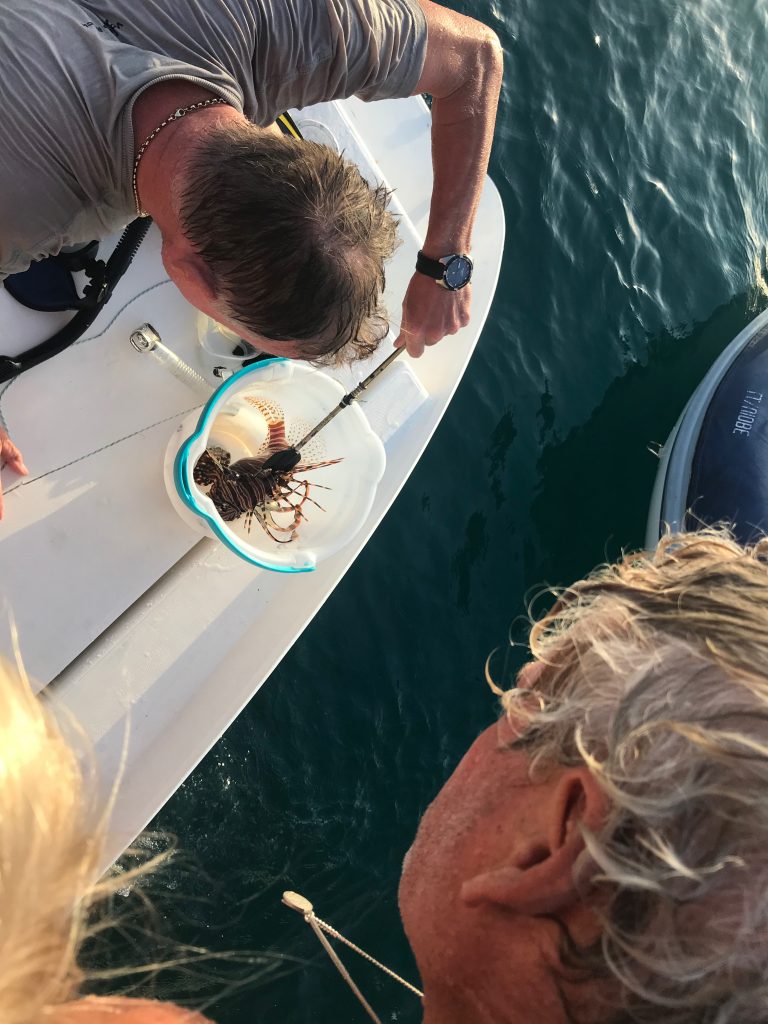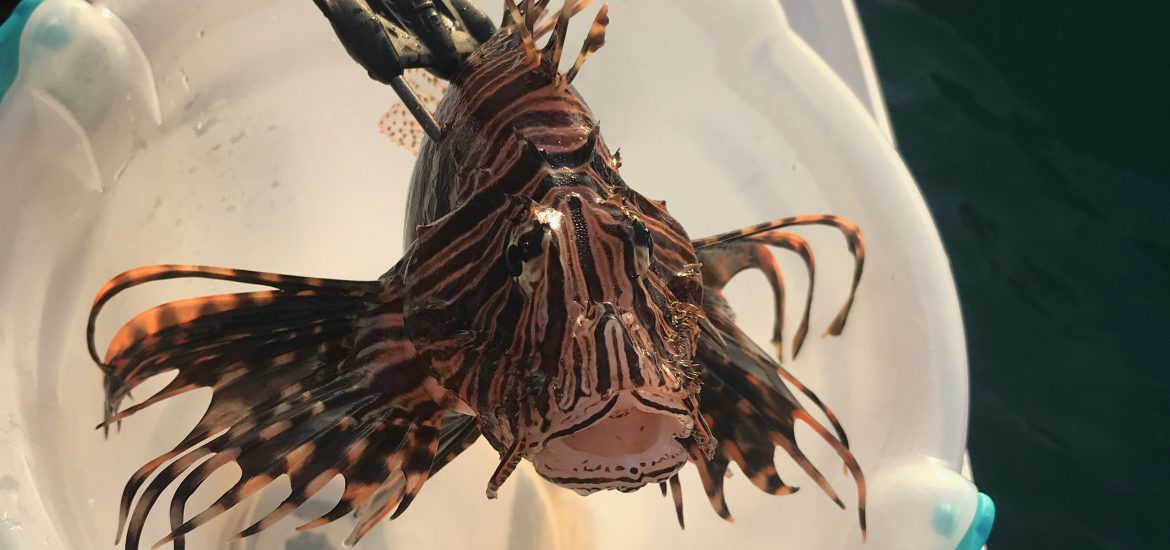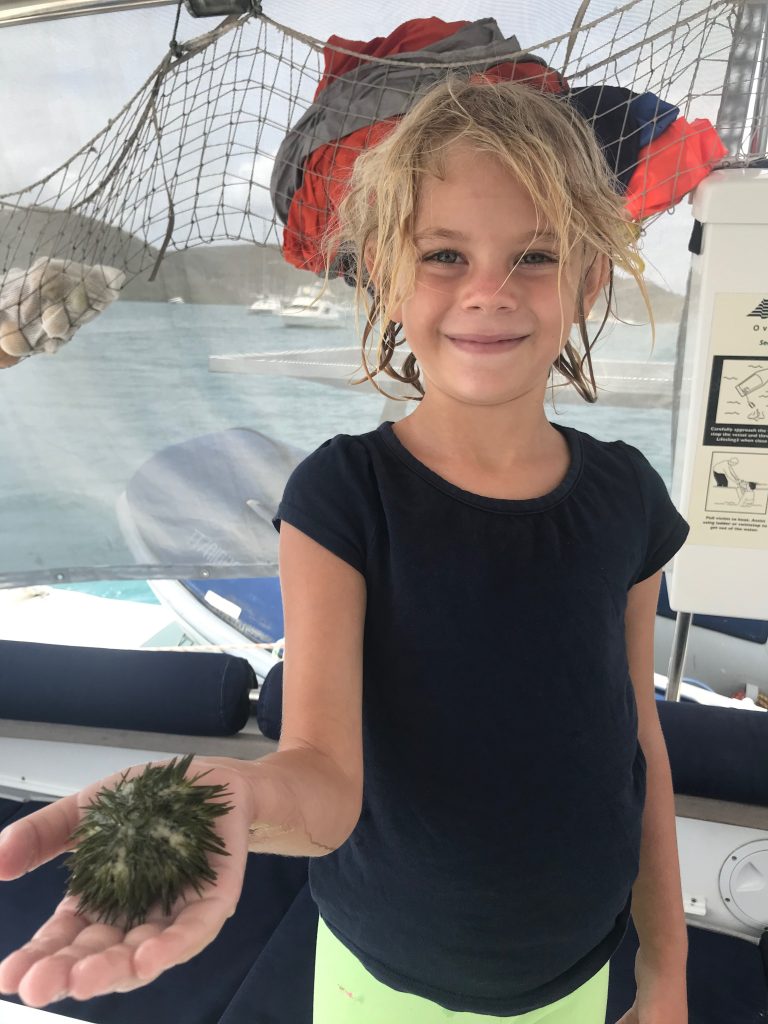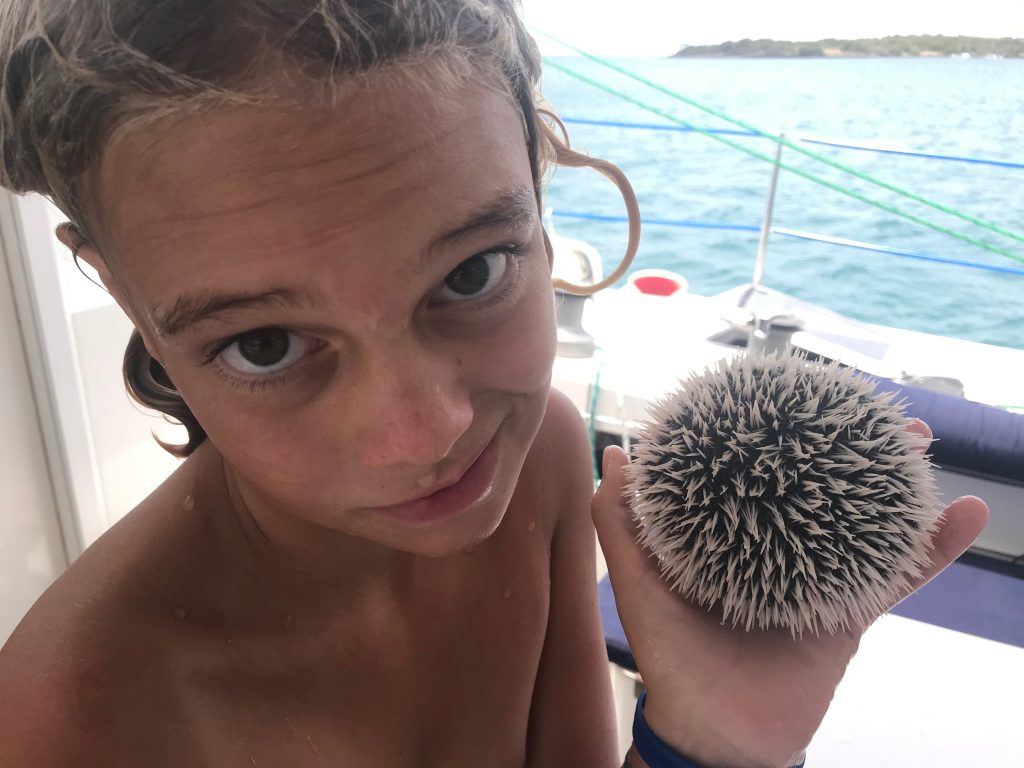It’s surprising how busy you can stay during quarantine!
In between marathon shopping trips, extensive boat projects and school, we still have managed to squeeze in all kinds of other activities. I’m going to give you a run down here.
We learned that Paul had not adequately celebrated an important milestone birthday (at least in our opinion) during the crossing from South Africa to Brazil so we held a surprise Unbirthday party for him on April 9, his quarter birthday. It’s always nice to have a reason for an Unbirthday and it somehow makes it more acceptable when the frosting is a bit drippy and the cake took too long to be ready.

Almost daily, we swim to the little reef near our boat. We find it odd that no one else swims there but it makes it even easier for me to justify that it’s part of “our yard.” The Grenadian rules say that you must stay in your residence, “inclusive of your yard” so I’ve decided that we have a large yard which includes the reef right next to our boat. On one of our swims, I told the girls we could bring some sea urchins back to the boat to examine them more closely.
They are fascinating creatures and we watched them in a bucket of water for a while. Marin’s urchin started extruding a large volume of what we could only guess was urchin excrement from the top of its body. It seemed obvious that the mouth was at the bottom of the urchin so we guessed the top must be its bottom (I don’t know how else to say that). I wish I could blame this next idea on the kids but unfortunately, it was mine. There was a bowl of uneaten, congealing baked beans next to the bucket that held the urchins. Rather than have it go completely to waste, I asked the kids if they wanted to see if the urchin wanted to eat one.
I didn’t think much of it and left them to it. No more than five minutes later, one of the girls told me to come look at the urchin. Out of the same hole that had earlier emitted a long stream of chunky greenish-brown matter, which was at the opposite end from the hole where the baked bean went in, was streaming bright orangish-brown-baked-bean-colored foamy stuff. Somehow one baked bean turned into a much larger quantity of gunk after passing through the urchin and, while I’m not sure how the urchin felt about it, I felt like I had somehow done a disservice to the urchin.
Feeling like they had suffered enough in our care, we returned the urchins to the reef and have refrained from feeding baked beans to any more wildlife.
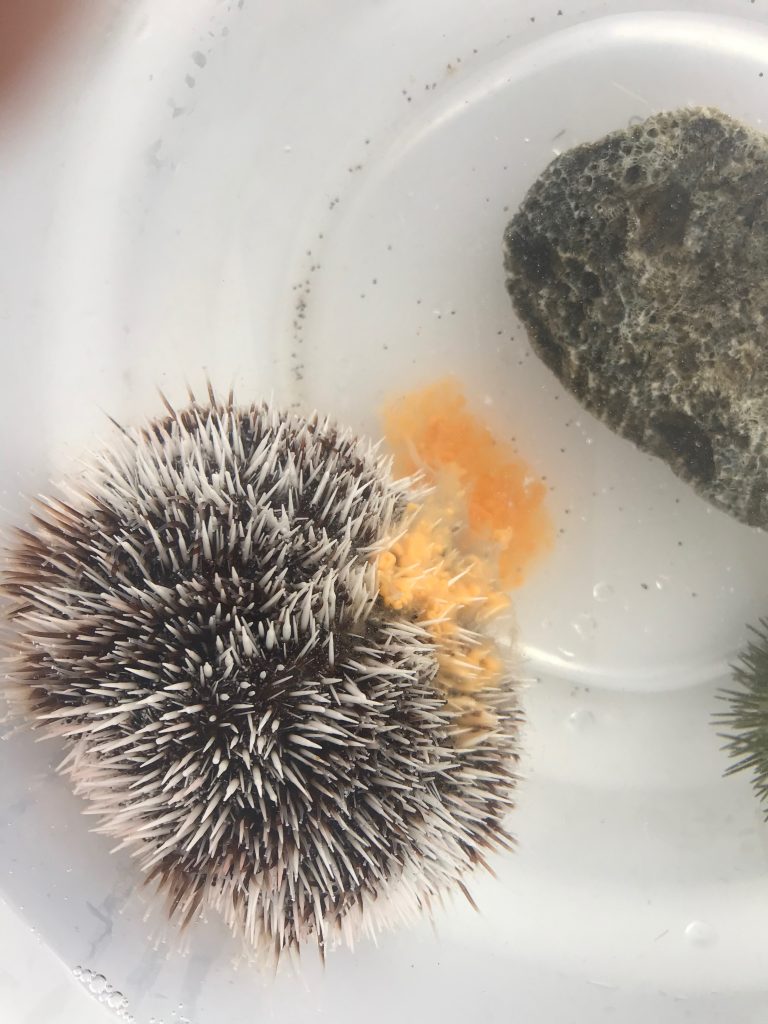
Cobin hasn’t been particularly interested in our forays to the reef but he did get excited about looking at things under the microscope. Luckily, he learned basic microscope techniques in junior high before we left Colorado so he has been showing the rest of us how to make slides and look at things. He zoomed in on a bit of sea urchin spine and we saw that each spine has tiny bumps at the end which probably aid them in holding on to delicious foods like baked beans which travel from spine to spine until they reach the mouth.
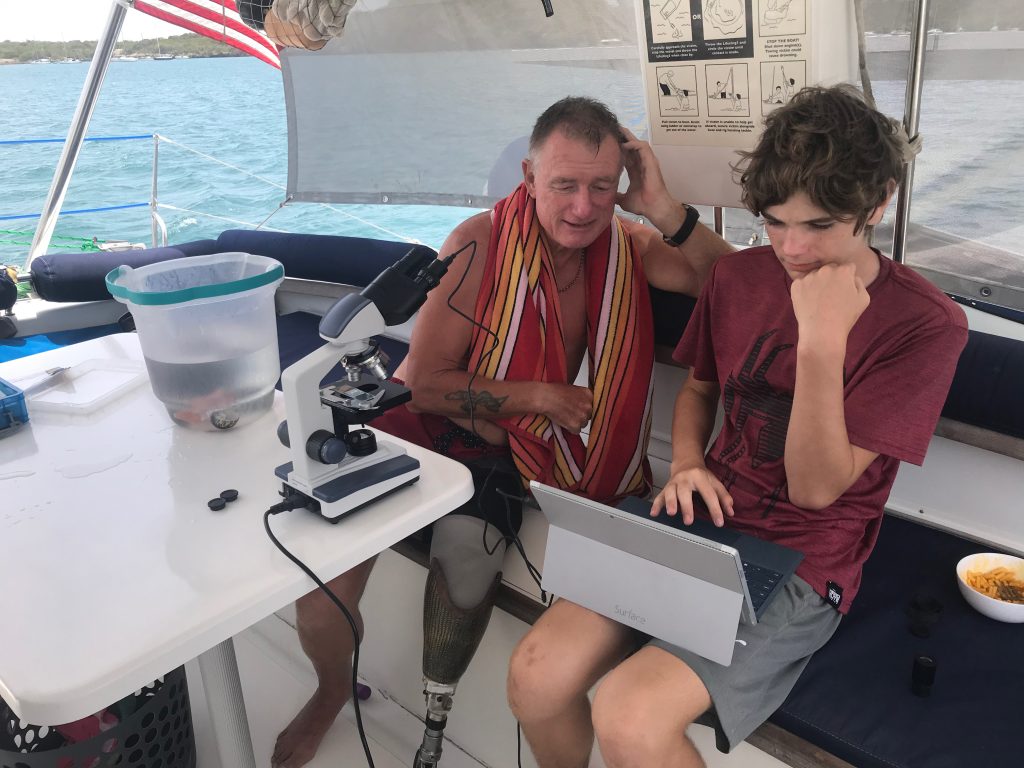
While we have quit feeding baked beans to sea creatures, it doesn’t mean we aren’t causing pain in other ways. Joe has become a dedicated lionfish hunter and heads to the reef most evenings, after learning that lionfish prefer to hunt at dusk and dawn. Lionfish are incredibly invasive and become the top predator in the reef, pushing out other predators that are native to the area and eating everything in their paths. One helpful link said lionfish could reduce the population of young native fish in an area by 79% in five weeks! They can also expand their stomachs to 30 times their normal volumes and consume almost anything they come across. Females produce about two million eggs a year, making them a big problem in the Caribbean and anywhere where they aren’t native.
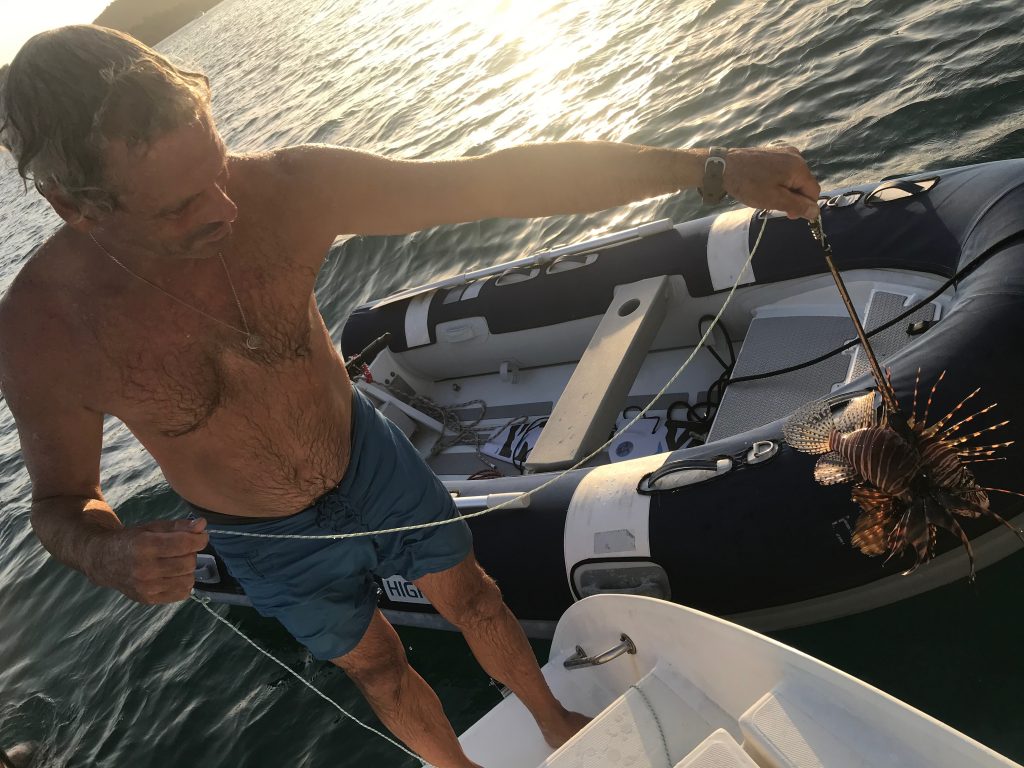
They are difficult to kill – Joe and Paul have both taken close shots, thought they had killed their prey and then found the fish still swimming along, skewered on the spear or wriggling away to hide. Joe got a big one that he brought back to the boat. This was challenging because their spines are venomous so you have to be careful not to touch them. Joe and Paul somehow managed to cut off all the spines and reduce the fish to a pile of filets which Joe cooked up and served. It’s delicious and you feel like you’re eating the bully of the reef. Good on so many levels!
